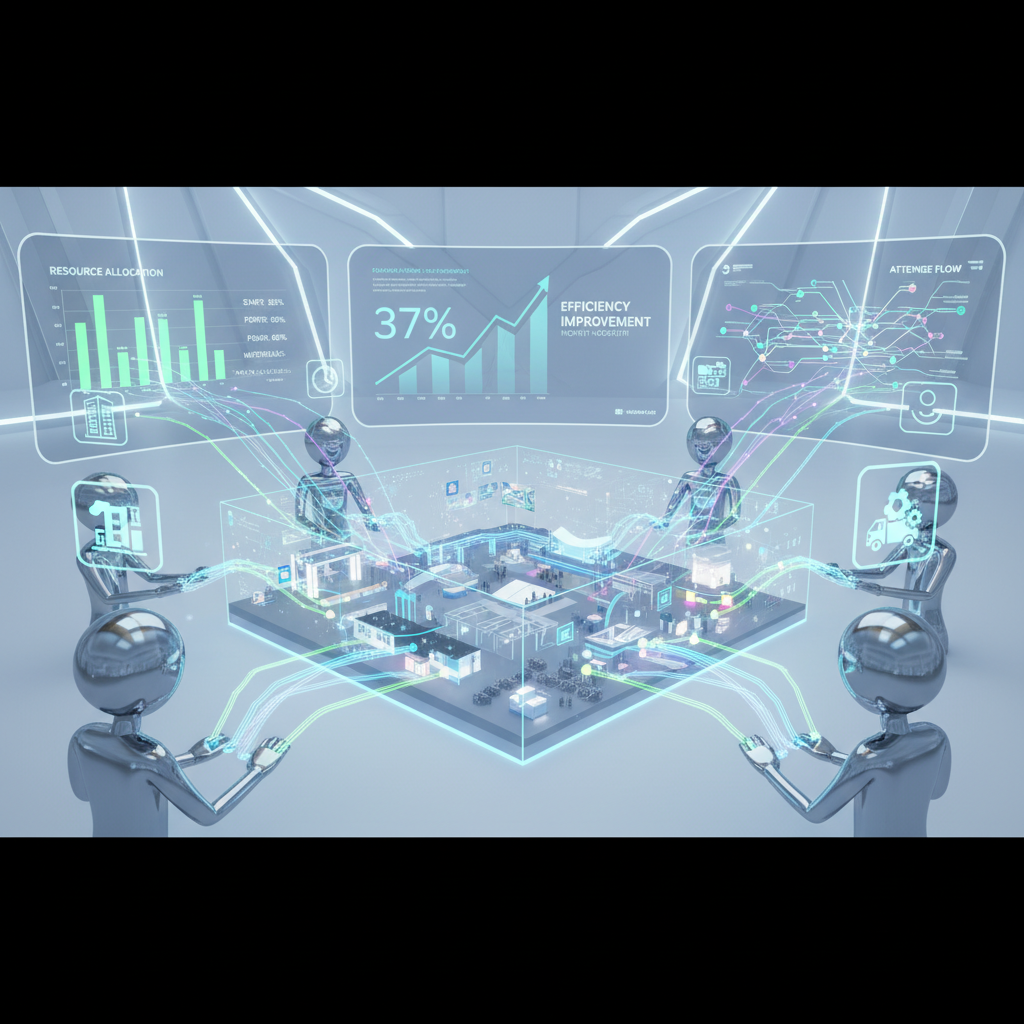
Frameworks, core principles and top case studies for SaaS pricing, learnt and refined over 28+ years of SaaS-monetization experience.
Thank you! Your submission has been received!
Oops! Something went wrong while submitting the form.
Join companies like Zoom, DocuSign, and Twilio using our systematic pricing approach to increase revenue by 12-40% year-over-year.

In the fast-paced world of event planning, staying ahead of the curve isn't just beneficial—it's essential. Event professionals are constantly seeking innovative solutions to streamline processes, reduce overhead, and deliver exceptional attendee experiences. Enter the game-changer: agentic AI and coordination intelligence systems. This advanced technology is reshaping how events are conceptualized, organized, and executed, offering unprecedented efficiency and personalization.
Event planning has transformed dramatically over recent decades. What once required months of manual coordination, countless phone calls, and mountains of paperwork has gradually evolved through several technological waves:
This latest evolution represents a fundamental shift—from tools that simply digitize existing processes to systems that actively participate in and optimize the planning process itself.
Traditional event planning software follows prescribed workflows and requires substantial human oversight. In contrast, agentic AI systems:
According to a recent study by Eventbrite, organizations implementing AI-powered event planning solutions reported a 37% reduction in planning time and a 28% decrease in operational costs.
Coordination intelligence serves as the backbone of effective event planning automation, encompassing several critical capabilities:
Modern event planning involves diverse stakeholders—venues, vendors, speakers, attendees, and internal teams. Coordination intelligence systems enable multiple AI agents to work together, each specializing in different aspects of event planning:
These specialized agents communicate and collaborate seamlessly, creating a holistic planning ecosystem.
Resource management—including budget, personnel, time, and physical assets—remains one of the most challenging aspects of event planning. Coordination intelligence systems excel at dynamic resource allocation by:
A case study from Microsoft's corporate events team revealed that implementing planning optimization AI reduced their resource allocation conflicts by 63% and improved budget accuracy by 42%.
When unexpected situations arise during events—from minor schedule adjustments to major disruptions like weather emergencies—rapid, informed decisions are crucial. Coordination intelligence provides:
This capability transforms crisis management from reactive to proactive, significantly reducing the stress and uncertainty typically associated with event disruptions.
The Consumer Electronics Show (CES) implemented coordination intelligence systems to manage their complex annual event with over 170,000 attendees, 4,500 exhibitors, and hundreds of sessions. The system:
The result was a 22% improvement in attendee satisfaction and a 15% reduction in operational overhead.
A global technology company deployed agentic AI to manage their annual series of 50+ customer events across different regions. The coordination intelligence system:
This implementation reduced planning time by 40% while improving attendance rates by 18%.
Even the wedding planning industry has begun adopting coordination intelligence, with platforms that:
According to WeddingWire, couples using AI-powered planning tools reported 47% less stress during the planning process.
For organizations looking to leverage agentic AI for event planning, consider this implementation roadmap:
Rather than replacing your entire planning process overnight, begin with a hybrid approach:
As your team becomes comfortable with the technology and results prove successful:
The most effective implementation of event planning AI isn't about replacing human planners—it's about enhancing their capabilities. The ideal coordination intelligence system acts as a partner that handles routine tasks, provides data-driven insights, and manages complex logistics, freeing human planners to focus on:
As Paddy Cosgrave, founder of Web Summit, noted: "AI hasn't replaced our event team—it's supercharged them. They're now focused on innovation rather than administration."
Event planning with agentic AI and coordination intelligence represents more than just another technological advancement—it signals a fundamental shift in how we approach complex organizational challenges. By delegating routine coordination tasks to intelligent systems, event professionals can elevate their role from logistical managers to strategic experience designers.
Organizations that embrace this transformation stand to gain significant competitive advantages: more impactful events, lower operational costs, reduced planning stress, and the ability to scale their event programs without proportional increases in staff or resources.
As we look toward the future of event planning, one thing becomes clear: coordination intelligence isn't just changing how events are planned—it's redefining what's possible in the world of experiential marketing and communications.

Join companies like Zoom, DocuSign, and Twilio using our systematic pricing approach to increase revenue by 12-40% year-over-year.